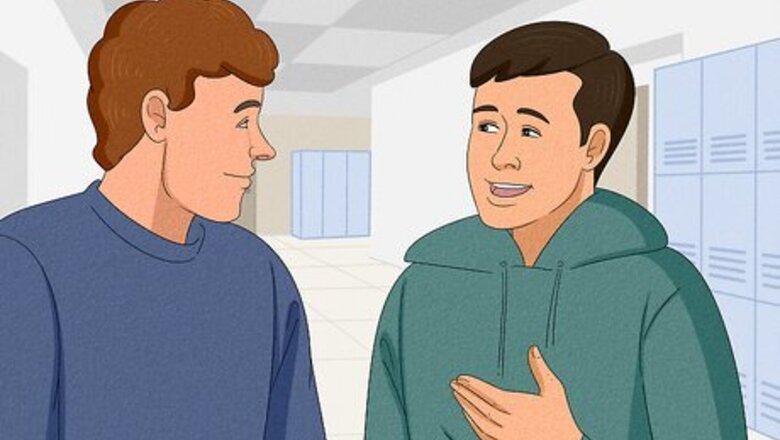
views
Top Qualities of a Good Friend

They have good communication. According to data from our “Love Languages” quiz, 45.4% of users believe amazing communication is the sign of a great friendship. True friends share their feelings, good and bad, and can talk things out when they have a disagreement. Doing this deepens the friendship and allows them to manage conflict in a healthy and mature way. “Healthy communication involves sharing how you feel and not bottling things up,” says licensed psychologist Sarah Schewitz, PsyD. She adds, “the [other] person needs to be heard, understood, validated, and empathized with.” Meet the wikiHow Experts Chloe Carmichael, PhD, is a licensed clinical psychologist who specializes in relationship issues and self-esteem, with over 12 years of psychological consulting experience. Sarah Schewitz, PsyD, is a licensed psychologist who helps individuals improve and change their patterns in love and relationships, with over 15 years of experience. Adam Dorsay, PsyD, is a licensed psychologist and TEDx speaker who specializes in assisting high-achieving adults with relationship issues, stress reduction, anxiety, and attaining more happiness in their lives. Asa Don Brown, PhD, DNCCM, FAAETS, is a clinical psychologist who specializes in working with families, children, and couples, with over 30 years of experience.

They’re supportive and encouraging. From our “Are You Best Friends?” quiz, a majority of respondents (60.7%) felt that being around their friend gave them a boost in how they feel about themselves. A good friend is “somebody who genuinely celebrates when things go well in your life,” says Dr. Carmichael. They encourage you to dream big and offer the strength you need to push forward. According to our “Are You Best Friends?” quiz, 43.6% of users would share big news with their friends first. This suggests that a good friend wants you to succeed and is excited when good things happen to you. Licensed psychologist and TEDx Speaker Adam Dorsay recommends applying the “Drive Away Test” to your friendship. “After hanging out with a friend as you’re driving away, ask yourself: Do I feel happier? Do I feel taller? Do I feel like a champion?” That can reveal whether it’s a friendship worth investing your time and energy into.
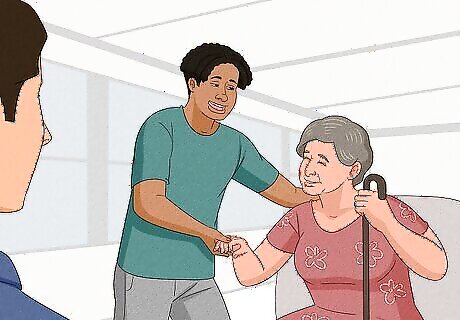
They treat everyone with kindness. Nearly half of the respondents (48.4%) from our “What Little Miss Am I?” quiz chose kindness as the most valued quality in a friend. This means not only being kind to you but also being accepting of others, even if they don’t share the same beliefs or opinions. Simply put, a good friend doesn’t judge, criticize, or make fun of people.
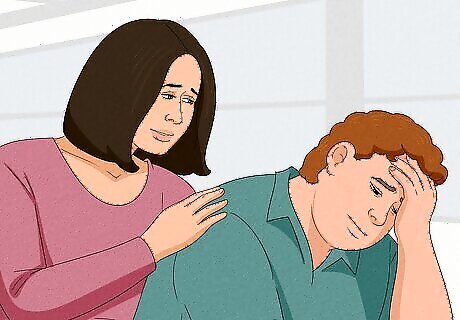
They are emotionally available for you. According to data from our “Are You Best Friends?” quiz, 63.1% of users would call their friend immediately after a breakup. This suggests that a good friend shows up for you, especially if you’re going through a difficult time. “It’s important to have someone who’s really available to you because that's a big part of friendship,” says Dr. Carmichael.

They always have your back. According to data from our “What’s My Hidden Talent?” quiz, 42.4% of users consider loyalty as the most valued quality in a friend. Being loyal is all about staying with your friend through the highs and lows, always giving them the benefit of the doubt, and standing up for them when others talk behind their back. “Authentic friendships are comprised of being loyal and supportive,” says clinical psychologist Asa Don Brown, PhD, DNCCM, FAAETS.
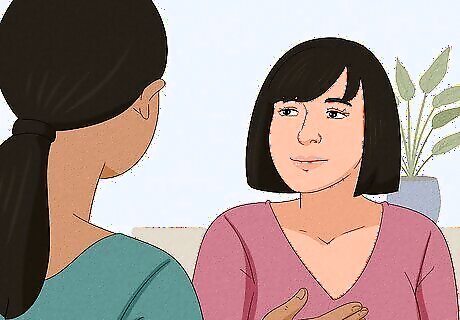
They’re a good listener. When asked about their hidden talent in our “Rate My Personality” quiz, the most popular response (44.2%) among users was “I’m a great listener.” This implies that listening is a highly valued quality in relationships. Good friends actively listen, give you space to express your feelings, and validate your emotions. According to developmental psychologist Leslie Bosch, PhD, “listening to a friend when they're feeling down can help comfort them.”

They put time and effort into the friendship. According to the results from our “Are You Best Friends?” quiz, a significant majority (55.45%) of users reported chatting with their best friend every day. A healthy friendship is reciprocal, meaning it’s a back-and-forth of time, energy, and emotion. Good friends are attuned to each other’s needs and make an equal effort to contribute to the relationship. “If you feel like the friendship would not even exist if it weren’t for you constantly holding it up and inviting the other person, that can be a little bit of a concern," says Dr. Carmichael. Licensed marriage and family therapist Jin S. Kim says, “A balanced relationship should be the aspirational goal more or less, and both parties should feel they are reaching out and contributing to the friendship.”
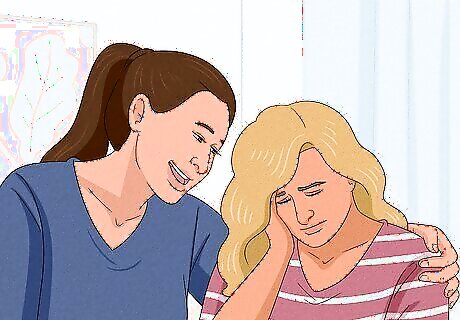
They’re caring and empathetic. When asked if their friend got hurt during a game in our “Am I a Good Friend?” quiz, 59.6% of respondents chose “Of course I go with them. Forget about tag, my friend needs my help!” This shows a strong inclination towards prioritizing a friend’s well-being, which is one of the key pillars of friendship. A good friend cares if you’re hurt or upset, and they want to do everything in their power to help you feel better. According to Dr. Bosch, empathy is all about “demonstrating that you understand where [your friend] is coming from, what they’re feeling, what they’re thinking, why they might be thinking and feeling that, and just validating their experience.”

They’re fun to be around. In our “What Fruit Am I?” quiz, fun-loving was the most popular word to describe friends (35.4%). A good friend is someone whom you enjoy spending time with and who can always brighten your day. This translates to feeling safe, comfortable, and better about yourself when they’re around! If you don’t feel like you can be your authentic self, then “this is an indication that the relationship has unhealthy qualities,” says Dr. Brown.
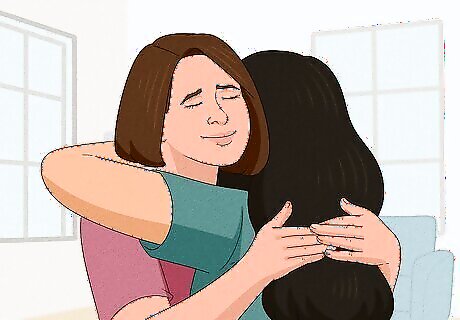
They’re forgiving and don’t hold grudges. From our “Are You Best Friends?” quiz, the top choice (53.4%) among users for resolving arguments in friendship was to talk it out. A good friend understands that everyone makes mistakes, so if there’s a disagreement, they’re willing to hear you out and understand your perspective. Even if they don’t agree with you entirely, they recognize that it’s okay to have different opinions and won’t hold anything against you. Forgiveness shows maturity, compassion, and high self-esteem, which are positive qualities you want in the people around you!
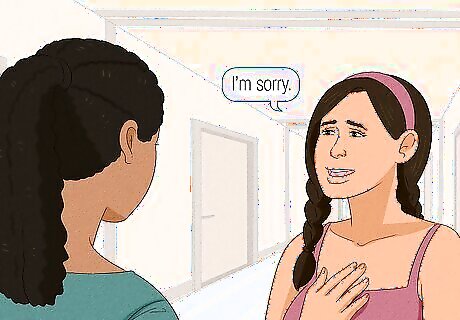
They hold themselves accountable. A true friend isn’t afraid or embarrassed to admit when they’re wrong. In fact, they want to take responsibility for their actions and make things right! This means taking the initiative to reach out and apologize after an argument, and express genuine regret for what was said or done. According to school counselor Evanne Torrecillas, “apologizing demonstrates accountability…and shows that you’re willing to put in the work to do better.”
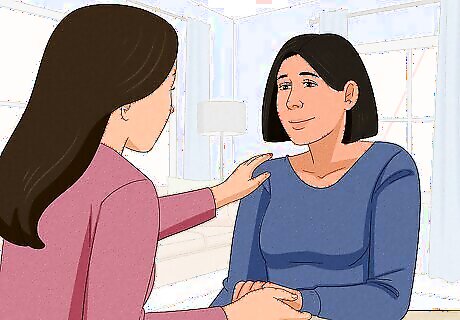
They’re trustworthy and reliable. According to Dr. Carmichael, “a good friend is somebody who’s reliable and that you can count on.” They keep the promises they’ve made, whether it’s getting back to you on time or following through on plans. You can always rely on a good friend and trust that they’ll keep their word. Flakiness can cause stress, disappointment, and feelings of being undervalued. It also suggests that the other person doesn’t respect your time, undermining your friendship.
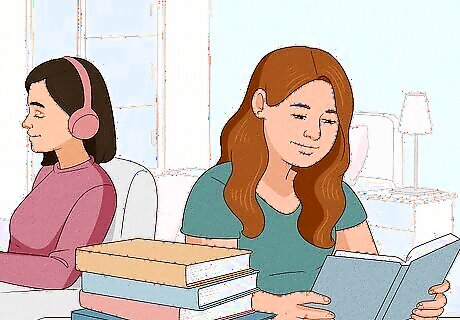
They respect your boundaries. “A true friend will never put you in a situation where you feel uncomfortable,” says school counselor Katie Styzek. They’ll respect your values and boundaries, which include your limits and expectations for the friendship. For example, if you need some alone time to focus on school or work, a good friend won’t try to encourage you to hold off your assignments so you can hang out with them.
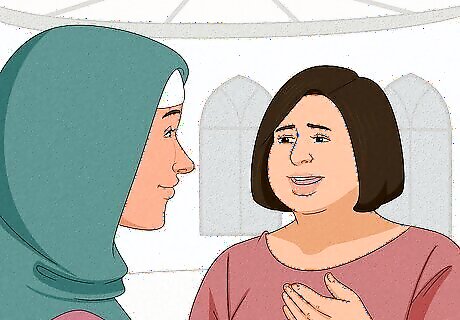
They engage in deep conversations. When asked who knows them best in our “What Should My Name Really Be?” quiz, most users (47.3%) chose “my best friend” as their answer. This suggests that true friends go beyond surface-level topics, getting to know each other on a deeper level. They feel comfortable being vulnerable and sharing their innermost thoughts, feelings, and values. If you want to take your friendship to the next level, check out these deep questions to ask your friends.
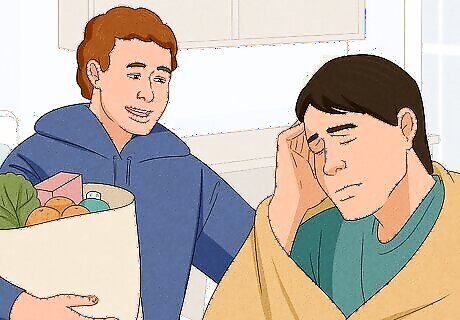
They’re always willing to help. According to the results from our “Am I a Narcissist or an Empath?” quiz, 37% of users believe that their friends come to them for help as often as they ask them for help. Good friends offer advice, emotional support, and practical resources when asked, especially when you’re facing challenges. If you’re dealing with the loss of a loved one, for example, a good friend may ask if you need help running errands or offer you a shoulder to cry on.

They’re non-judgmental. Good friends provide a safe space where you can discuss your fears and insecurities without feeling bad about yourself. They accept who you are, without trying to change you, and always try to understand where you’re coming from. This feeling of safety and vulnerability deepens your friendship, allowing you to embrace your most authentic self. A good friend may challenge your opinion or play devil’s advocate from time to time, but they always have good intentions and want you to be happy.

They’re low-maintenance. While good friends expect some quality time and effort, they don’t want to be a burden. They don’t expect constant attention or updates from you. However, they’re always there when you need to talk. When you reconnect, it usually feels like no time has passed. Even if you don’t live nearby or haven’t seen each other in a while, reconnecting with a good friend feels like nothing has changed.

They keep your secrets. True friends value trust and take confidentiality seriously. That means they don’t tell your secrets to other people (unless there’s a risk that you may hurt yourself or someone else), and they feel honored that you’ve chosen to confide in them.
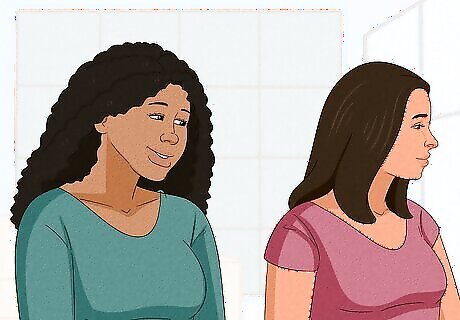
They’re patient. A good friend is patient, meaning they give you space when you need it and don’t pressure you to express your feelings until you’re ready to do so. This helps you build a strong foundation in your friendship so it can develop and thrive!

They align with your friendship goals. Setting goals helps you get the most out of your relationships, allowing you to identify what you want in your friendship without simply waiting for things to change. Good friends have similar goals and priorities, which can help them deepen their connection. If you want to set a goal of keeping in touch over long distances, for instance, a true friend could make an effort to FaceTime you more often.
Signs of a Bad Friend

One-sidedness, negativity, and unreliability are signs of a bad friend. “If you feel that your friend regularly disregards your boundaries, or makes you engage in activities or situations that you don’t feel comfortable in, it may be time to evaluate that friendship,” says Kim. Bad friends may also gossip about you, act jealous or competitive with your successes, or only stick around when they need something from you, whether it’s money, advice, or other resources. When asked if their friend ever makes them feel bad about themselves in our “Are They a Good Friend?” quiz, 38.8% of users said “no, never.” This suggests that good friends make each other feel comfortable and good about themselves.
How to Find Good Friends
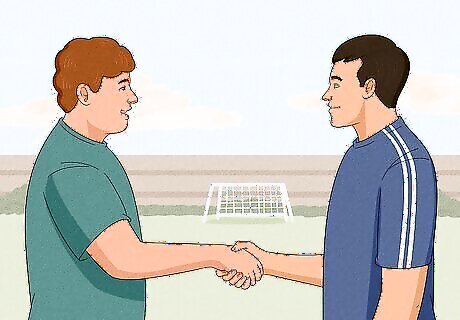
Join clubs, attend social events, and put yourself out there to find good friends. According to clinical therapist and adjunct professor Rebecca Tenzer, MAT, MA, LCSW, CCTP, CGCS, CCATP, CCFP, “joining a club or organization that aligns with your interests is a great way to meet like-minded individuals.” You can also attend events, like dances, parties, and happy hours, to meet people in a relaxed and social setting. Alternatively, utilize apps or social media to meet people in your area with similar goals and interests. “Building friendships can take time, and you might face some setbacks. Stay positive, keep trying, and don't be discouraged if not every attempt leads to a new friend,” advises Tenzer. Tenzer also says, “Don’t hesitate to approach someone who looks approachable and strike up a conversation. Asking questions about their interests or offering a genuine compliment can be a great icebreaker.”
How to Be a Good Friend

Be supportive, actively listen, and communicate honestly to be a good friend. According to Dr. Brown, “authentic friendships are comprised of the following qualities: having an ability and willingness to actively communicate, compassion and empathy, loyalty and support, and most of all, meeting you where you are.” Additionally, “Tell them you are grateful for their presence, energy, or words. People are rarely reinforced and crave to be seen in many cases,” advises clinical psychologist Kim Chronister, PsyD. Make time for your friends, check in with them often, and follow through on your promises to show care and respect. Here are more tips to be a better friend: Understand and respect your friend’s boundaries. Make an effort to spend quality time with your friend. Accept your friend for who they are and don’t judge them. Keep their secrets and stick up for them when they need support. Be a cheerleader for their successes and encourage them when they’re down. Give them your full attention when they speak and ask them follow-up questions. Communicate openly and work together to resolve any conflicts in your friendship.
How to Avoid Unhealthy Friendships
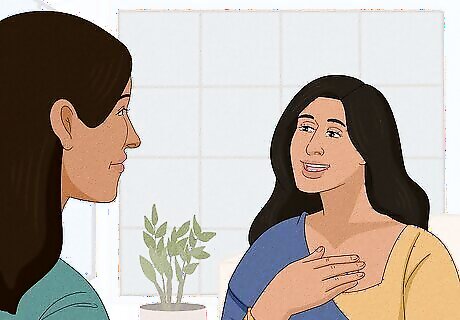
Be selective about your friends and set clear boundaries. According to Dr. Dorsay, “some friends feed you, and some friends bleed you.” It’s important to recognize the difference, pay attention to how they make you feel, and clearly communicate what you will and will not tolerate from them. For example, if your friend keeps emotionally dumping on you, be honest about your feelings and let them know you’re not in the right space to support them. You might say, “I totally understand that you’re upset, but I’m also going through a lot right now. Is it okay if we talk about something else?” If they disregard your boundaries and won’t give you space, distance yourself by telling them you’re busy or responding to their calls or messages slowly. Although it’s normal to experience guilt when you establish boundaries, remember that it’s important to protect your peace. Setting limits around your time and energy is a form of self-care, which allows you to manage your physical and mental health. A toxic friend might talk badly about you, belittle you, violate your boundaries, only talk about themselves, rarely apologize, or make you feel drained or stressed.



















Comments
0 comment